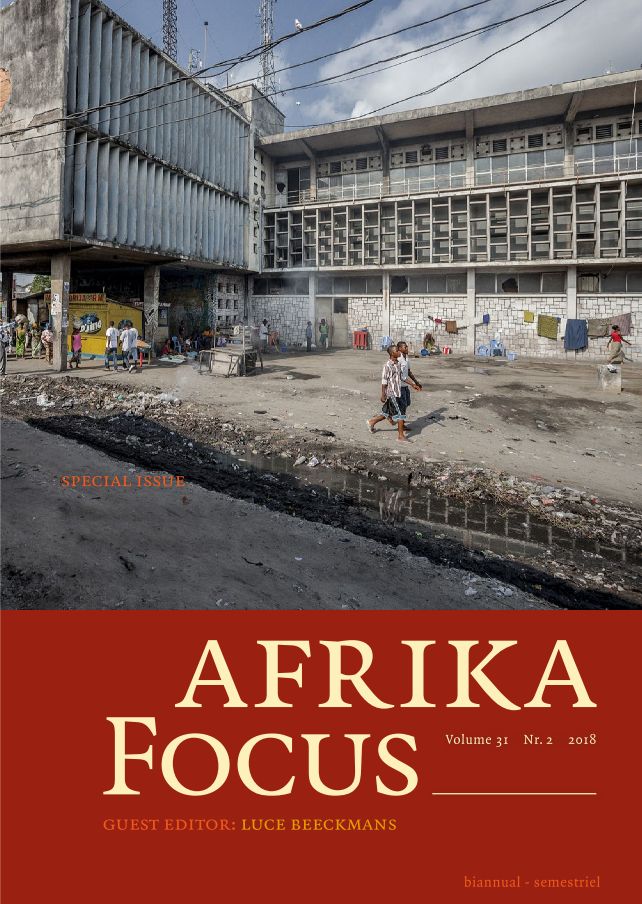Mediating Matonge: Relocations of Belgian Postcoloniality in Four Films
DOI:
https://doi.org/10.21825/af.v31i2.9924Abstract
In this paper I look at the Matonge neighbourhood of Brussels as a locus of postcolonial and diasporic imagination and activism by different groups and individuals most notably people who identify as Africans, Belgians with African roots, or ‘Black’ in Belgium. Within a longer historical narrative that starts in the late 19th century, I focus on the period beginning in the late 1980s when new migrational flows from Africa and other southern countries into Brussels make the Matonge quarter increasingly visible in an otherwise hesitantly globalizing Belgian/European metropolis. This issue is taken up by several filmmakers who, over the last thirty years, have situated their critiques of the Belgian postcolonial condition in ‘Matonge’. In this paper I briefly present four of these films in order to illustrate the ways in which ‘Matonge’ features in changing discourses concerning inequality, cultural affirmation, and diasporic activism. KEYWORDS: MATONGE, BRUSSELS, POSTCOLONIAL CONDITION, MEDIA AND MEDIATIONDownloads
Published
How to Cite
Issue
Section
License
Copyright (c) 2019 Karel Arnout

This work is licensed under a Creative Commons Attribution-ShareAlike 4.0 International License.
Authors who publish with this journal agree to the following terms
Authors retain copyright and grant the journal right of first publication with the work simultaneously licensed under a Creative Commons Attribution License that allows others to share the work with an acknowledgement of the work's authorship and initial publication in this journal.
Authors are able to enter into separate, additional contractual arrangements for the non-exclusive distribution of the journal's published version of the work (e.g., post it to an institutional repository or publish it in a book), with an acknowledgement of its initial publication in this journal.
Authors are permitted and encouraged to post their work online (e.g., in institutional repositories or on their website) prior to and during the submission process, as it can lead to productive exchanges, as well as earlier and greater citation of published work (See The Effect of Open Access).


